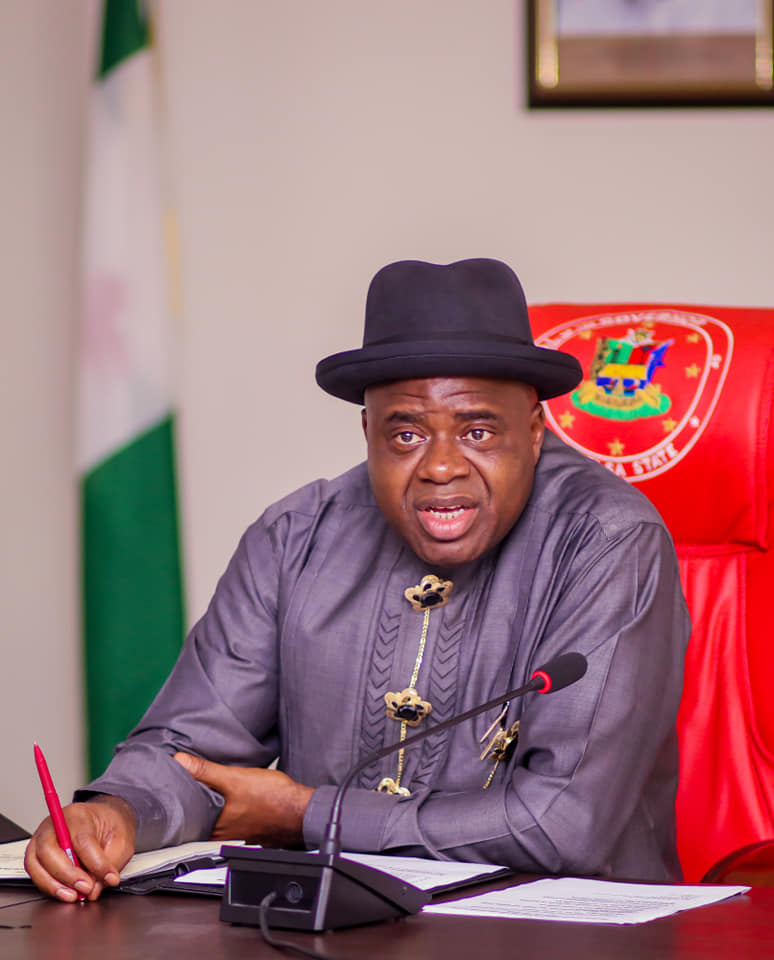Niger Delta
Diri Decries Environmental Degradation, Calls For Remediation

Bayelsa State Governor, Senator Douye Diri, has called for urgent remediation of the state’s environment following years of degradation and neglect.
Governor Diri made the call at a state banquet in honour of the United Nations Resident and Humanitarian Coordinator, Mr. Edward Kallon, in Yenagoa.
The governor decried the hardship suffered by the people due to the exploration activities of oil multinationals, which he said had destroyed the state’s ecosystem.
A statement by his Chief Press Secretary, Mr. Daniel Alabrah, quoted Governor Diri as drawing the attention of the international community to the injustice and environmental despoliation of the land that has fed the nation economically.
He said despite measures by the federal government in addressing the issue, they only amounted to nothing due to insincerity and lack of political will.
“I like to place on record that our environment that has been raped and degraded over the years is seeking remediation.
“The previous administration, as a result of the level of degradation, decided to set up an environmental commission headed by the immediate Past Archbishop of York, Dr John Sentamu. Its report is yet to be fully addressed. We have some part of it and we believe that it would bring to limelight what the people of Bayelsa have suffered, particularly in the hands of oil exploitation and exploring companies.
“Our environments, particularly our water resources, are heavily polluted. Our economic activities have been crippled over the years because of the same reason and even when the federal government has taken some measures to address this, they are more like a slap on the wrist.”
He expressed the hope that the state’s partnership with the UN would address most of the issues highlighted and usher in sustainable development to the state.
Speaking earlier, the UN Resident and Humanitarian Coordinator, Mr. Edward Kallon, commended Governor Diri for stabilising and ensuring peace and security in the state, stating that there is no development without peace.
Mr. Kallon emphasised that peace and development were only possible when strong institutions drive development.
The UN coordinator also noted that the international body was not unaware of the injustice meted out to and the exploitation of the Niger Delta people and their environment.
Highpoint of the event was the honouring and decoration of Diri, his wife, Dr. Gloria, and the Deputy Governor, Senator Lawrence Ewhrudjakpo, as Sustainable Development Goals (SDG) Champions.
By: Ariwera Ibibo-Howells, Yenagoa
Niger Delta
Oborevwori Launches Medical Outreach For Children With Special Needs

Niger Delta
UniCal Commits To Nursing Education Dev In C’River

Niger Delta
Agency Demolishes Illegal Roadside Structures In Delta N8 by … Clears Street Traders

-

 Politics4 days ago
Politics4 days agoAPC Releases Adjusted Timetable For Nationwide Congresses, Convention
-

 Sports1 day ago
Sports1 day ago2026 WC: Nigeria, DR Congo Awaits FIFA Verdict Today
-
Sports4 days ago
DG NIS Wants NSC Board Constituted, Seeks Increased In Funding
-

 Business4 days ago
Business4 days agoCustoms Seek Support To Curb Smuggling In Ogun
-

 Featured4 days ago
Featured4 days agoINEC Proposes N873.78bn For 2027 Elections, N171bn For 2026 Operations
-

 Sports4 days ago
Sports4 days agoSWAN Rivers Set-up Five Functional Committees
-
Sports4 days ago
NSC Disburses N200m Training Grants To 26 Athletes
-
Sports4 days ago
‘NTF Will Build On Davis Cup Success For Brighter Future’

